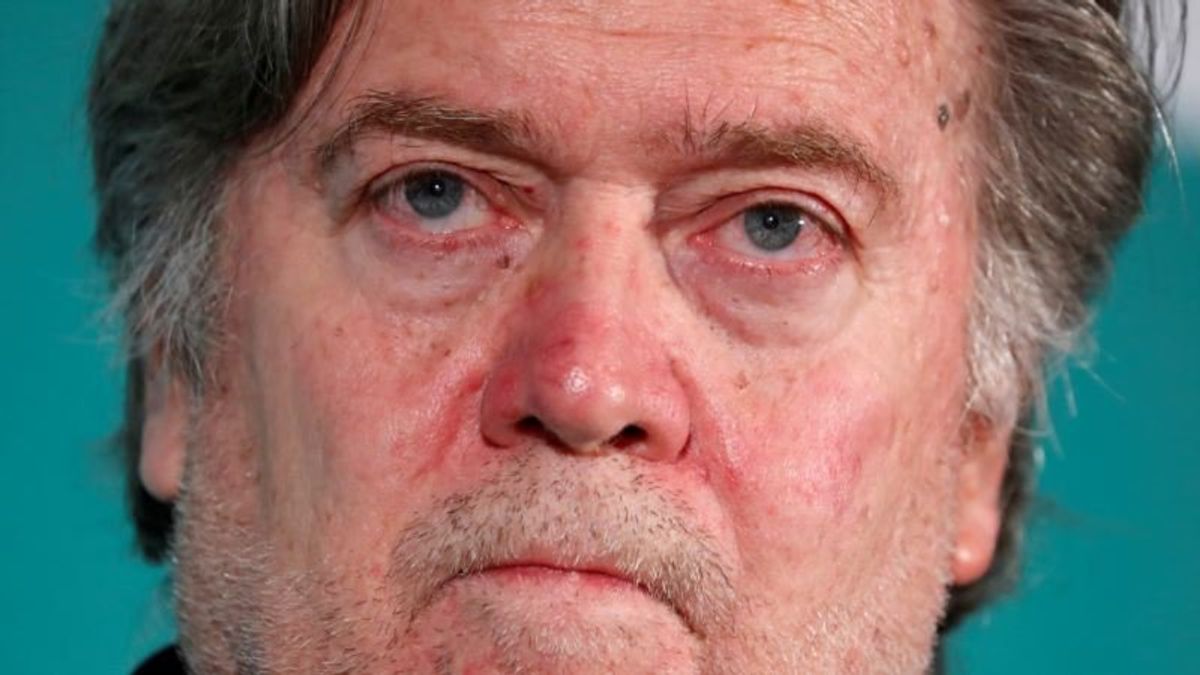
Former Trump Aide Bannon Sets Up Group to Undermine EU
Former Trump Aide Bannon Sets up Group to Undermine EU

LONDON —
Former Donald Trump political strategist Steve Bannon and a top associate have created a Brussels-based political organization intended to undermine, and ultimately paralyze, the European Union, Bannon and the associate told Reuters.
In an interview and email conversations, Bannon and Raheem Kassam, a former chief aide to British anti-EU leader Nigel Farage who now serves as a Bannon lieutenant, said the group, known as The Movement, is already operating and hiring.
"The Movement will be our clearing house for the populist, nationalist movement in Europe. We're focusing attention on assisting individuals or groups concerned with the matters of sovereignty, border control, jobs, amongst other things," Kassam said.
"We decided to headquarter out of Brussels because it is the heart of the European Union — the most pernicious force against nation state democracy in the West today.
"The organization is already a structured foundation with a significant annual budget and we have started to staff up," he said.
Kassam declined to give further details about the foundation.
Bannon, who during a London visit last week met Farage and Louis Aliot, a close associate of French far-right politician Marine Le Pen, described the organization he was creating as a "populist project" intended to touch off a "tectonic plate shift in Europe.
"Next year's European parliamentary elections are going to be a major test for both Eurosceptics and reformers alike, and The Movement is where those two causes dovetail," Kassam said.
"The political establishment has worked with the assistance of innumerable NGOs for decades, one hand washing the other. We felt like it was time there was an organization on the side of ordinary people, instead of the vested, big business lobbying interests in Europe," he added.
The European Union traces its origins back to the aftermath of the Second World War, meant as a way of fostering economic cooperation and curbing national rivalries. Today it is the largest economic bloc in the world and has expanded its political powers.
Its "goals and values" state that it promotes peace, offers freedom, security and justice without internal borders and enhances solidarity among member states. Proponents say it defends European interests, whether against global powers such as China and the United States or against multinational
companies seeking monopolistic footholds.
Targeting elections
Bannon and Kassam said their plan was to use their new movement to organize a major turnout of nationalist and populist voters in European Parliament elections which take place in all EU member states next May.
Voter turnout in European Parliament elections historically is low, and Bannon said he and his organization hope that by mobilizing local anti-EU groups they can elect a large enough group of Members of the European Parliament to disrupt and even shut down the Parliament and the European Commission.
Asked about Bannon's plans on Monday, the Commission's chief spokesman told reporters that the EU executive noted them but declined further comment.
Senior EU officials gearing up for the 2019 election acknowledge that parties hostile to the Union could do well, but few expect them to have enough seats to disrupt the functioning of the institutions.
Parliament in itself is the weakest of the three main political bodies in Brussels, after the Council of member states and the Commission. It cannot propose legislation and would need a majority to block laws and budgets.
Right-wing, anti-EU groups have about 100 seats in the current 751-seat assembly.
With Britain's departure next March, Farage and 18 other UK Independence Party members will lose their seats in what will be a 705-seat chamber.
Irrespective of the EU election results, new deals to form transnational party groups in the parliament after the vote will also be key to the strength of any anti-EU bloc.
Some experts on Europe's far-right parties and movements question the extent to which Bannon and his associates will be able to unite enlarged right-wing European Parliamentary factions.
After the 2014 election, efforts to unite the far-right failed, leaving Farage and France's Marine Le Pen leading rival groups and Farage accusing the French of being anti-Semitic.
 Trump: ‘Gave Up Nothing’ to Putin at SummitNext PostTrump ‘Very Happy’ with North Korea Nuclear Weapons Talks
Trump: ‘Gave Up Nothing’ to Putin at SummitNext PostTrump ‘Very Happy’ with North Korea Nuclear Weapons Talks 





